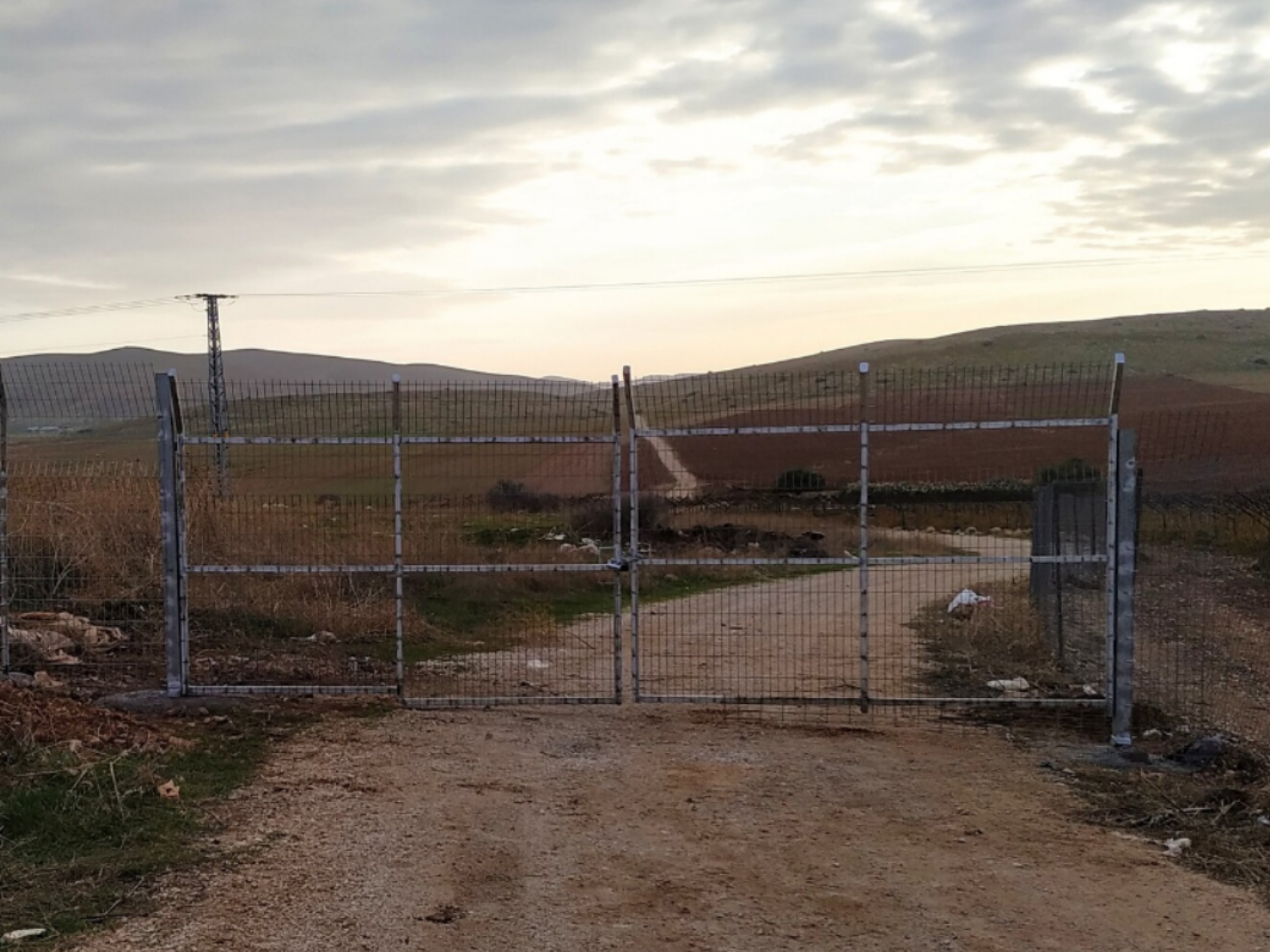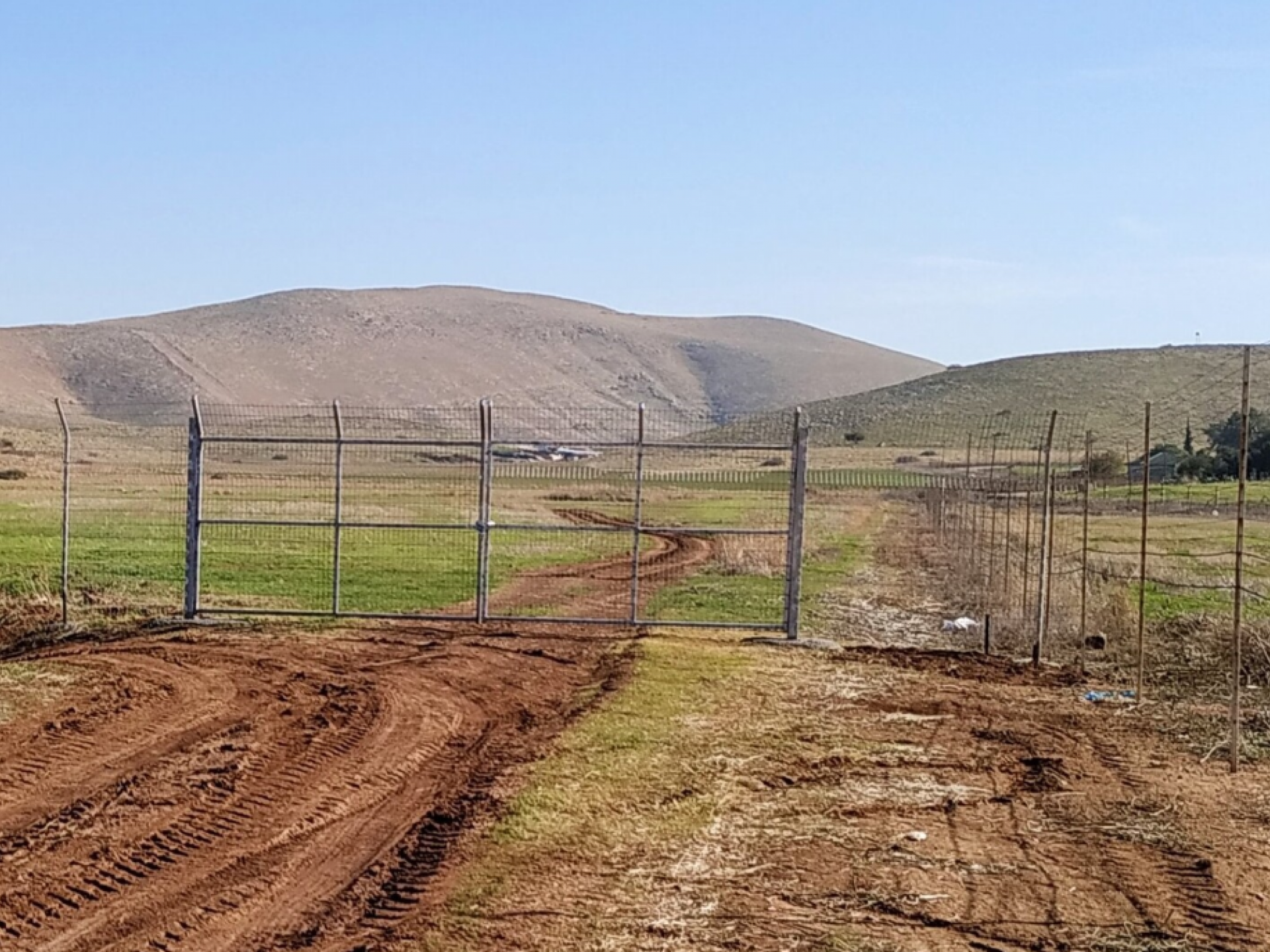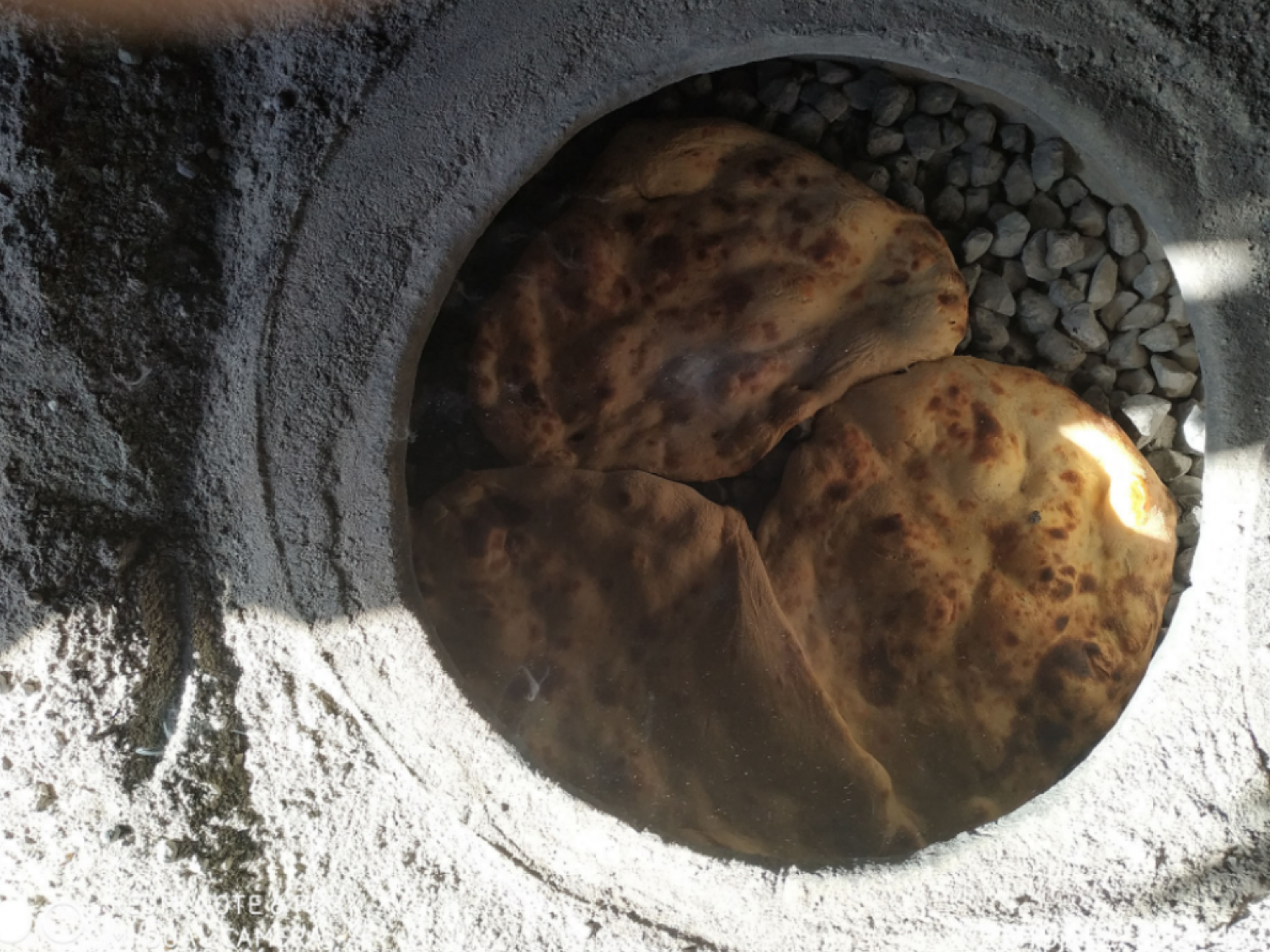The Jewish settler-colonies carry out land grab in plain daylight
Sowing season at the En Rashash area
Shortly before entering the encampment at En Rashash we discovered a small group of meager tents – bits and pieces of cloth and plastic, on high rocky ground. These belong to the people who have left the nearby village of Al Mughayer for no longer having any place there. They do still have a small shack there where they live during the olive harvest (September-November) when they are employed there as harvesters. They themselves do not own any land. Here they lease 4 dunams at 100 shekels a dunam from a Turmus Aya resident who lives in the US. They sow and pray for rain, for there is no water to be had. Today we saw the father, I., slowing flat beans, just as was done 2000 years ago: walking, one furrow after another, scattering the seeds out of a bag hanging on his shoulder. 3 families live here, 17 persons in all – mostly children under the age of 5. When we arrived only the women were there, and very glad to see us.
While we were there, an army jeep arrived. One of the soldiers told the father of the family that an army maneuver was taking place in the area (claiming it was a firing zone) and that he could not go out to graze his flock. We asked the officer whether at other times permission was granted and he answered that it was. I. told us that that at other times he was forbidden to graze as well, all at the orders of the settler-colonist from the illegal outpost “Angels of Peace”. He also told us that Elhanan, that settler-colonist, often visits them on mini tractors with his “hill youth”, harasses, threats, and hits the children. Since we often come to the area along with other Taayush activists, we actually witness the violence, the daily harassment by these “death angels”. The Palestinians here live under real terror.
Sowing season and much activity on the ground
When we left the family, about 10 Palestinians came in cars, apparently landowners from the area between Rashash and Duma. We were told they were from Thalfit. On our way we saw a tractor tending the ground below, and a farmer scattering seeds from a container hanging down his shoulder. On our way back we saw two Palestinians sowing biqiya seeds the same way, serving as feed for the flocks, on a hill slope that does not even have terraces except for some terrace segments crushed here and there. We were told that the Palestinians are not allowed to repair them. Even this ancient, Biblical form of farming is restricted when it is practiced by them.
The men were out grazing the flock. There were no special events on the road leading to the main road (Allon Road). We saw many private cars carrying uniformed army personnel, apparently driving to the army maneuvers taking place at the time.
In my former report I wrote about the Roi settler-colony blocking the dirt tracks leading to Al Hadidiya, and preventing the Palestinian children from reaching school and from the inhabitants to access a road leading to medical care, shopping, and any other form of life factic. Today too we entered the track leading to Homsa and Hadidiya. It was 12:20 p.m. The gate was open because a Palestinian car followed by the Roi security official’s car passed through it. 3 hours later, on our way back, the gate was locked with a steel chain. The security official’s car was off to the greenhouses and areas that Roi settler-colony has taken over and is tending. There were several fire points there, and a fire truck had arrived as well.
We drove to the second, northern gate via the shorter and relatively convenient track to Hadidiya. The gate was closed and locked. The fires were nearby and thick smoke covered the track and the fields.
The original greenhouse area, next to the settler-colony, is neglected. Plastic sheets all around, and tall weeds cover the ground. Unlike them, we saw vast areas that are newly tended, and greenhouses whose new profiles are still shining and attest to their freshness. Since the whole point of tending these lands is to take over more and more dunams, the ones next to the colony itself, legitimized, have become superfluous and can be neglected now. Every year more land north of the settler-colony is taken over at the expense of Palestinian-tended land of course. The northern gate was locked.
In neighboring Makhoul we saw a car parked near the encampment. Apparently because all of the tracks to Al Hadidiya are blocked, the only Palestinian with a car at Hadidiya brought it to Makhoul and people walk or ride the tractor for 5 km. I’m thinking of Roukiya, 60-years old, a cardiac patient as well as diabetic, barely alive, riding the tractor to get to a doctor or visit her children, and my it’s heart rending.
Visiting the family of R. who made us flatbread in the outdoor oven and hosted us with them and the cheese she made that very day
The elder daughter, 1st grader, who had acclimatization problems at school at the beginning of the year, proudly showed us her school books. First an Arabic book with pages of good marks proving her reading and writing skills. Then she brought out an English book and surprised us with her knowledge of many useful English words. By the way, the girl’s problems had apparently resulted from the lack of kindergarten in the area. There is not a single kindergarten or school. The children have no framework in which to acquire learning habits, not even toys and games. They run around in this desolate place, among the sheep and goats, help their parents a bit, and do a lot of nothing. Their transition to school seems difficult. A few years ago volunteers of the Jordan Valley Solidarity movement built a mud structure that was supposed to serve as a kindergarten and first grade for the area’s children. Within a few months, the Israeli military occupation brutes came and demolished it.
16:00 – driving back through the Hamra Checkpoint we saw the checkpoint manned, and more than 10 cars waiting for the soldier there to signal them to pass. Within minutes the line of waiting cars grew longer. About 15 minutes after we got there the checkpoint was opened for free passage without inspection. Lately soldiers have been operating the checkpoint more than in the past, especially during “rush hour”. A Palestinian is on his way home from a day’s work in the Palestinian Jordan Valley, exhausted, or wishes to make it to a dentist’s appointment – and never knows how long he will be stuck at the checkpoint. The inspection (and the delay, consequently) was intended mostly for those traveling in the direction of Nablus, inside the West Bank. So we ask – what on earth is the “security” reasoning for inspecting Palestinians entering a Palestinian area??





